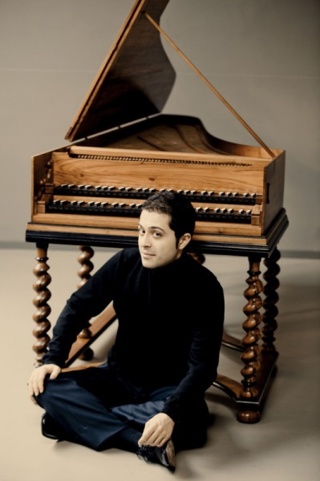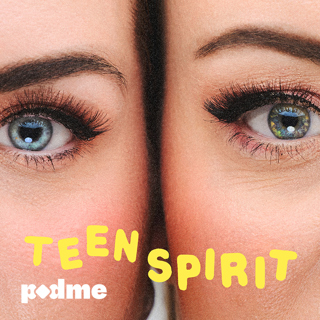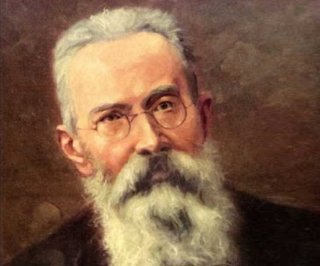
Rimsky-Korsakov: Scheherezade
Rimsky-Korsakov, above anything else, is regarded as a master of orchestration, the art of creating orchestral sound and color. As Rachmaninoff said about Rimsky-Korsakov's music: "When there is a snowstorm, the flakes seem to dance and drift. When the sun is high, all instruments shine with an almost fiery glow. When there is water, the waves ripple and splash audibly throughout the orchestra … ; the sound is cool and glassy when he describes a calm winter night with glittering starlit sky." Nowhere is this gift more on display than in one of Rimsky-Korsakov's seminal works, Scheherezade. But this work is far more than only orchestration. It is a shining example of a number of complicated facets of both Rimsky-Korsakov's and Russian Nationalist music of the time. It also displays so many of the contradictions that marked this era of classical music, and in particular, Russian classical music. Rimsky-Korsakov originally gave the piece a clear narrative, but then withdrew it angrily, saying that any programmatic narrative was merely meant peripherally, and "I meant these hints to direct but slightly the hearer's fancy…All I had desired was that the hearer, if he liked my piece as symphonic music, should carry away the impression that it is beyond doubt an oriental narrative of some numerous and varied fairy-tale wonders and not merely four pieces played one after the other…" And that word, oriental, a complicated word in our modern times to be sure, plays a huge and unavoidable role in this piece. This was a time when Imperial Russia occupied lands in Central Asia, and when the Russian public became obsessed with so called "oriental" literature and music. Composers drew liberally on these sources for their music, and Rimsky Korsakov's mentor, the great composer Mily Balakirev, heavily encouraged Russian composers to use these sources as a way to set their music apart from German composers of the time. A group of composers, the not at all egotistically named "Mighty Five" Balakirev, Mussorgsky, Rimsky-Korsakov, Borodin, and Cesar Cui, almost all became famous through their use of Central Asian and Middle Eastern themes and stories. But no piece has captured the imagination of listeners around the world more than Scheherezade, a piece that drew upon the collection of Middle Eastern folk tales known and One Thousand and One Nights, and features some of the most legendary melodies in the history of Western Classical Music. We're going to talk about all of this today on this Patreon sponsored episode, so please join us!
3 Helmi 202256min
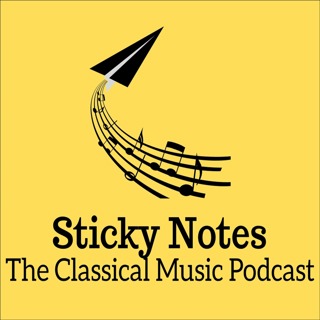
R. Nathaniel Dett: The Ordering of Moses
In May of 1937, R. Nathaniel Dett's oratorio "The Ordering of Moses" was premiered by the Cincinnati Symphony. The performance was carried live on national radio by NBC, but about 3/4's of the way through the piece, the broadcast was halted due to unspecified scheduling conflicts, the origins of which remain mysterious and highly speculated on. And since its premiere, The Ordering of Moses has been performed only a handful of times, and never, as far as I can tell, outside of the United States. Well, that is going to change this February, as I'll be conducting the UK premiere of the Oratorio with the City of Birmingham Symphony Orchestra and Chorus and soloists Rodrick Dixon, Chrystal Williams, and Eric Greene. Today on the show I'm going to tell you all about Dett's remarkable story, his passionate advocacy for black folk music and spirituals, and the profoundly moving music that runs all the way through The Ordering of Moses. You won't regret jumping into this rarely heard and rarely talked about gem of a piece, so come join us!
27 Tammi 202257min
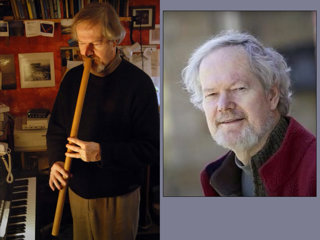
The Music of Ingram Marshall
"I never really thought of them as walls. I thought of them more as boundaries. Walls are a much more serious matter. You're not supposed to be able to get through, while boundaries at least you can crossover and I think the whole crossover thing is basically what the history of music in the second part of this century is about. It's about crossing over these boundaries." If there's one quote that could sum up the music of the composer Ingram Marshall, it might be this one. Last week I talked about Sibelius and our inability to place him in the typical classical music eras of Romantic or Modernist music. Well, Ingram Marshall's music follows very much on that discussion, and it's no surprise that Sibelius is one of Marshall's favorite composers. I imagine most of you listening to the show today are not familiar with Ingram Marshalls' music, so today on this Patreon Sponsored episode, I'm going to briefly give you a background on this remarkable modern composer, and then we'll finish the show with both an interview and an analysis of Marhsall's work Flow with the great composer Timo Andres, who studied with Marshall and had some great insights on his music. You won't regret diving into the remarkable work of Ingram Marshall, so come and join us!
20 Tammi 202258min
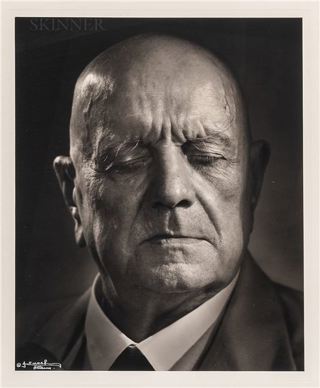
Sibelius Symphony No. 5
Sibelius never gets mentioned on "most" lists, the most innovative, modernistic, romantic, beautiful, conservative, ugly, violent, peaceful etc. In fact, no one is ever sure where to put him on these lists, and that's partly due to that lifespan that began when Brahms was 32 and ended when Pierre Boulez was also 32 years old. And this uncomfortable place between Romantic and Modernist is exactly why Sibelius is, to me, one of the most interesting topics to cover on this show - and the perfect vehicle to explore Sibelius further is the 5th symphony, one of the most remarkable fusions of modernism and romanticism I've ever heard.
13 Tammi 20221h 6min
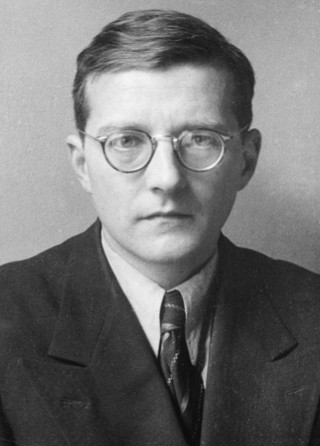
Shostakovich Symphony No. 5, Part 2
Last week I told you the story of the genesis of Shostakovich's 5th symphony. We talked politics, but we also talked about just the music itself. Today, I'll take you through the second half of the symphony, again first from a musical point of view. But by the end of the piece, the political conversation and the debate over the ending itself becomes unavoidable. There is no other piece whose character or even tempo is as debated as the ending of Shostakovich's 5th, so we're going to have it out! Join us!
6 Tammi 202249min
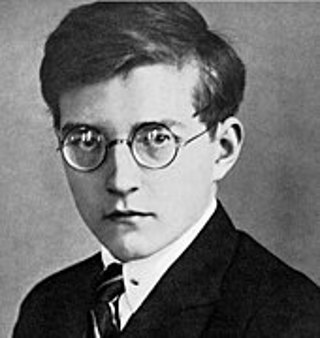
Shostakovich Symphony No. 5, Part 1
Shostakovich's life and career was so wrapped up with his relationship to the Soviet government that it is sometimes hard to appreciate that, all else aside, he was one of the great 20th century composers. His 5th symphony is the meeting point between Shostakovich's music and the political web he was often ensnared in, and it is a piece that is still being vociferously debated. This week we're going to tell the story of the piece's genesis, and then we'll explore the first two movements of the symphony.
30 Joulu 202152min

Ysaye Sonatas for Solo Violin
If you're not a violinist, you might not be familiar with the name Eugene Ysaye. But this violinist and composer was called "The King of the Violin" at the turn of the 20th century. Ysaye's biggest compositional achievement was inspired by a performance by the legendary Joseph Szigeti in 1923. Enraptured, Ysaye went into his studio and 24 hours later (!), he emerged with 6 solo violin sonatas, each dedicated to one of his favorite violinists. Dive in with us this week to learn all about these amazing works!
16 Joulu 20211h 16min
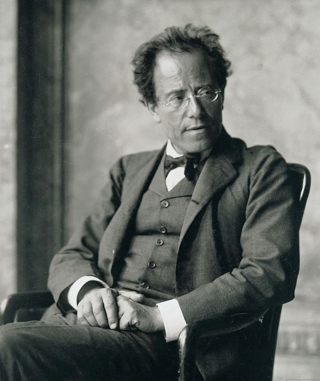
Mahler Symphony No. 1, Part 2
This week, on part 2 of this look at Mahler 1, we're going to take a deep dive into the third and fourth movements of this massive and massively ambitious symphony. We'll talk about Frere Jacques, bizarre woodcuts, Klezmer bands, cries of wounded hearts, the most touching consolation, terror, rage, standing horn sections, and one of the most exhilarating endings of any symphony. Mahler's 1st symphony was one of the most ambitious statements a young composer ever made, so let's finish the journey together!
9 Joulu 202158min
